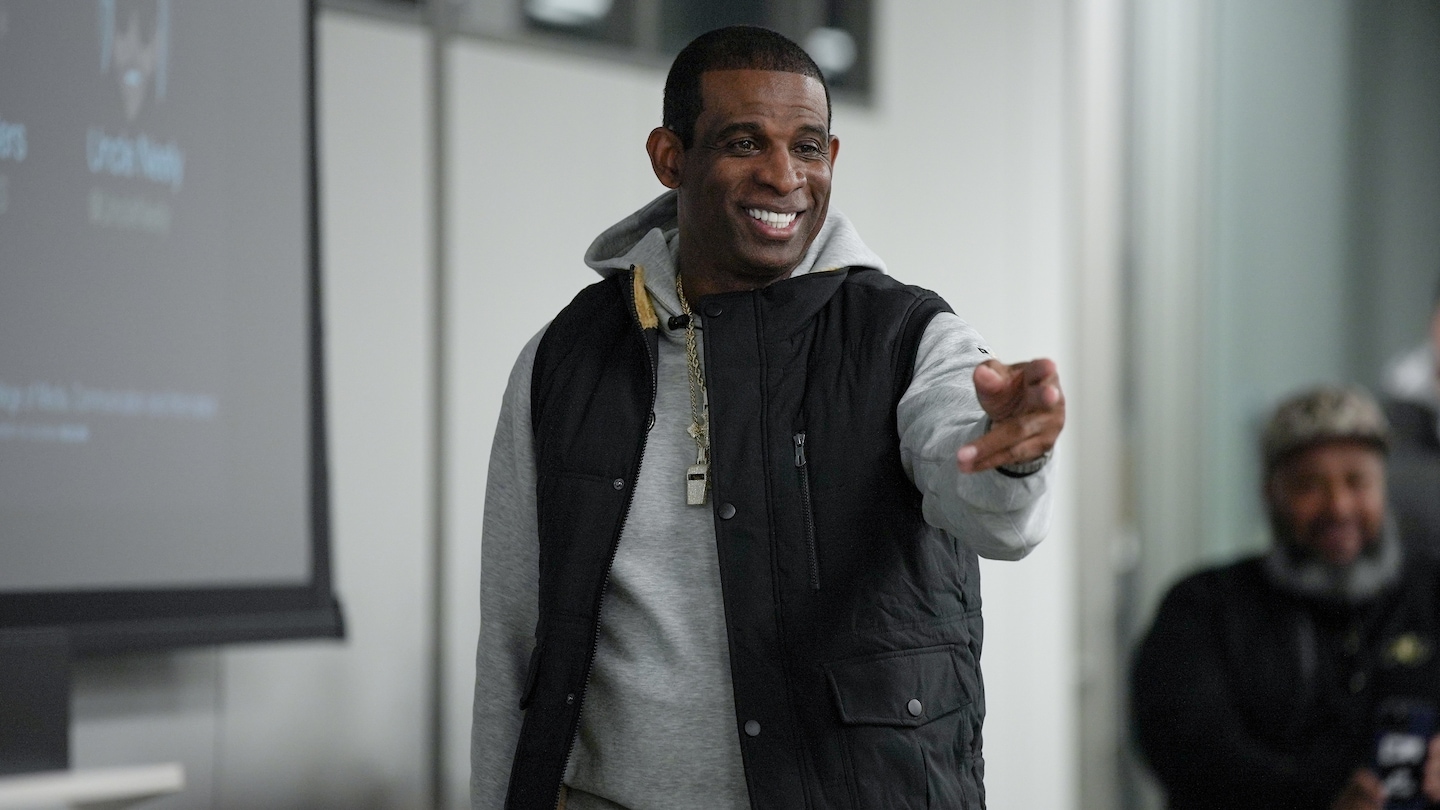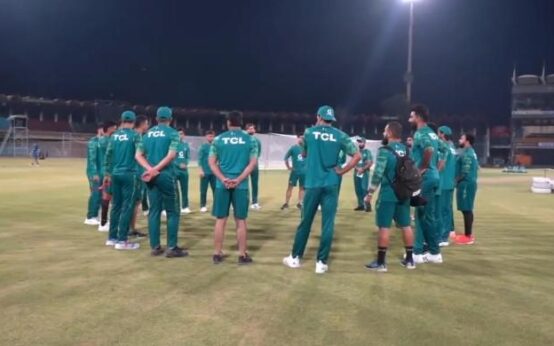In October, Sanders made the cover of Time magazine, smiling above the headline: “The Believer: How Deion Sanders is Changing Football Forever.” At the end of November, Sports Illustrated named “Coach Prime” its Sportsperson of the Year, his team’s 4-8 record be damned. And then in December, as if this all weren’t quite enough, University of Colorado students could register for a new class in the spring semester, offered by a group of 12 professors in the College of Media, Communication and Information.
“I read the title — ‘Prime Time: Public Performance and Leadership’ — and was immediately sold,” said Carolanne Ayers, a junior in the class. “After everything that happened last season, I couldn’t really wrap my head around that this was a course we could take.”
Professors were noodling on a college sports class before Colorado hired Sanders last winter. But once he took over, there was a living, breathing, posting jumping off point for everything they wanted to discuss: How name, image and likeness (NIL) had overhauled the power dynamics in college sports … How athletes could leverage their brands and social followings for big financial gain … How in Boulder, of all places, sports culture had collided with celebrity culture, once Sanders swapped out much of that one-win team for his small army of transfers.
Or put another way, they wanted to dissect the Prime-ification of college athletics. Sometimes Prime Time is a tangential topic, such as when Abbey Shea, the university’s assistant athletic director in charge of NIL, guest lectured about the intricacies of NIL and how college athletes can make money. And sometimes it’s more on the nose, such as when Sanders himself visited class this month for a presentation about social media.
He arrived, as he usually does, trailed by cameras and members of his media team. He then explained why his personal security guard stood in the corner, wearing a tan cowboy hat and dark shades inside.
“We get death threats, so, you know, we have to bring security places,” Sanders said, laughing with the room. “I’m dead serious, too. I’m not lying.”
At one point, Sanders explained the difference between his public and private personas, a major theme of the class. Coach Prime is who they saw on TV all fall, making the hype machine hum around Colorado. Prime Time, as a nickname, was born when he played football. As a professional baseball player, he dialed it back a bit. So which version of Sanders did the students feel they got?
“I don’t think we had Deion,” sophomore Ashlin Stasswender Swasey said. “I mean, he had us call him Professor Prime, so he was still in that persona. He talked to us like adults, and it was great. He was asking us why we were here. All of our questions were screened beforehand, but I wanted to ask him so badly: ‘Why are you here in this class?’
“Because you’re obviously gaining something from being with us. You have a camera crew filming. I think it’s just really helpful to realize that everything is for gain. That’s Prime Time for you.”
Among the 30 or so students, there’s a wide range of career goals. Ayers is interested in public relations. Stasswender Swasey could see herself in sports marketing, working with data on fan demographics. Adaya Richmond, a senior, dreams of hosting a sports talk show. Junior Jamie Powderly has considered digital journalism or broadcasting.
For the professors, then, a challenge was creating a curriculum that could reach a variety of students. That’s partly why there are a dozen instructors, trading off lectures. And that’s why Jamie Skerski, one of the professors, often comes back to two questions: What has Deion Sanders’s approach at Colorado showed us about college sports in 2024? And what are some unintended consequences of a Prime Time sports culture, such as how it has affected female athletes or the football players who were run off to make room for Sanders’s guys?
“The Deion Sanders moment, this Prime Time moment, is symptomatic of everything intersecting in college sports right now,” Skerski said. “We have someone like Deion who was a personal brand before that was a buzzword. He has the on-the-ground history of doing this. And now he brings it to a football culture in complete transition. What he’s done at Colorado can’t happen without NIL and the transfer portal, right? It changed everything.”
Rick Stevens, another professor, described his vision like this: “The purpose of the class is to have students think about this Prime Time persona. This kind of public celebrity role that’s played, that’s not just about what’s happening on the court or on the field but is also about building up a profile for endorsements, thinking about their financial future, trying to figure out who they should interact with, how to speak about causes and social justice. All of these issues were interesting because they were new. All these relationships have changed.”
With these changes, there have been some surprises in class discussions. Most of the students didn’t know how much NIL money came from donor-funded collectives, which essentially pay revenue-sport athletes a salary in exchange for charity work. They also didn’t know how difficult it is for international athletes to navigate NIL because of the terms of their student visas.
Meeting twice a week, there’s a lot more ground to cover. The landscape is shifting by the day, if not by the hour, meaning this class in future semesters might look a lot different from how it looks now. And after his hour-long talk this month, after his social team posted a 47-minute reel of the visit, Professor Prime is planning to return.
“For people who like to pretend that sports is not a glorified version of reality television, they are missing what’s going on right now,” Skerski said. “They may like to take sports really seriously and think it’s all pure. But it is entertainment first, and Deion Sanders knows that.”


 Best Underground Water Leak Detection Equipment 2024
Best Underground Water Leak Detection Equipment 2024  Best Backyard Ideas: Turn Your Outdoor Area Into a Creative and Calm Haven
Best Backyard Ideas: Turn Your Outdoor Area Into a Creative and Calm Haven  Babar, Rizwan are good players but not whole team, says Mohammad Hafeez
Babar, Rizwan are good players but not whole team, says Mohammad Hafeez  Pak vs NZ: Green Shirts aim to bounce back against Kiwis today
Pak vs NZ: Green Shirts aim to bounce back against Kiwis today